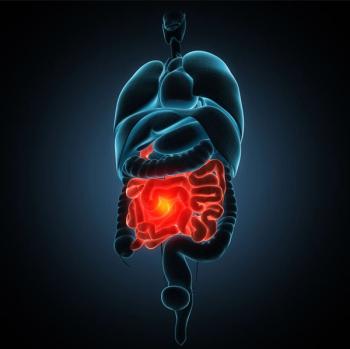
Inflammatory Bowel Disease Treatment: Advance to Anti-TNFs?
A purely dichotomous understanding of whether to start treatment for patients who have IBD with anti-TNF agents is becoming an outdated view.
A purely dichotomous understanding of whether to start treatment for patients who have inflammatory bowel disease (IBD) with anti–tumor necrosis factor (anti-TNF) agents is becoming an outdated view. At least that was a recurring theme throughout 2012 Advances in Inflammatory Bowel Diseases, the Crohn’s & Colitis Foundation’s Clinical & Research Conference, held this week in Hollywood, Florida.
Although debate continues about whether to try other agents first, this discussion has been based on the presumption that anti-TNF drugs carry a high risk of serious infections and malignancies. Most conference presenters cited accumulating evidence suggesting that this risk has been overstated.
As such, the trend seems to be toward a modified “step-up” approach to therapy-perhaps beginning with less aggressive agents in the setting of mild disease but rapidly progressing to anti-TNF agents, especially in combination with immunomodulators (thiopurines), and basing treatment decisions on aggressive therapeutic monitoring (Bruce Sands, MD, Mount Sinai, New York, and William Sandborn, MD, University of California, San Diego).
More aggressive approaches are particularly favored for Crohn disease, where 5-ASA agents such as mesalamine are ineffective (contrast this with ulcerative colitis, where Sunanda Kane, MD, Mayo Clinic, Rochester, Minnesota, presented
Marla Dubinsky, MD, Cedars-Sinai Medical Center, Los Angeles, laid out the landscape on remission induction and therapeutic monitoring early in the conference, focusing on the thiopurines. The goal of any IBD treatment plan is to induce and maintain a durable, corticosteroid-sparing remission that decreases the risk of surgery and cancer. Dr Dubinsky presented the results of meta-analyses that demonstrated that the odds of remission induction with thiopurines increase 3- to 5-fold if therapeutic drug levels can be demonstrated. Simply dosing by patient weight-adjustment (mg/kg/d) is inadequate because patients vary widely in their ability to metabolize thiopurines.
As such, 74% of treatment failures are the result of underdosing. This suggests that many patients could avoid the need for anti-TNF agents if drug levels of thiopurines were monitored properly (although the
However, drug levels for thiopurines are just the beginning. Multiple speakers advocated aggressive therapeutic monitoring that assesses clinical response to whichever drug is selected. Edward Loftus, MD (Mayo Clinic, Rochester, Minnesota), who spoke on the use of cross-sectional imaging for therapeutic monitoring, noted a lack of correlation between symptoms and objective endoscopic and systemic inflammation.
The old paradigm, of treating on the basis of symptoms, is being supplanted by a new paradigm of rapidly stepping up or changing therapy on the basis of objective markers of inflammation.
Newsletter
Enhance your clinical practice with the Patient Care newsletter, offering the latest evidence-based guidelines, diagnostic insights, and treatment strategies for primary care physicians.

































































































































